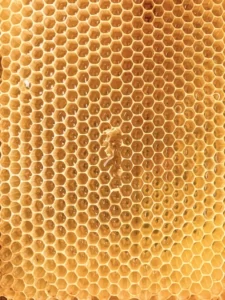Table of Contents
About 40,000 children and adults live with cystic fibrosis in the United States, and approximately 105,000 people have been diagnosed with CF across 94 countries. In this article, we’ll share information from research that has been done in this area, with a focus on the potential for using Manuka honey to prevent or treat upper respiratory infections for cystic fibrosis sufferers. We hope it helps shed light and potentially provide you with enough information to consider if Manuka honey might positively affect your health.
What is Cystic Fibrosis?
Cystic fibrosis is a lower respiratory infection where sticky mucus builds up in the lungs, airways, and digestive system, causing lung infections and problems with food digestion. It is an inherited condition where a child inherits one copy of the mutated gene from each parent. If a child inherits only one copy from one parent, they won’t develop cystic fibrosis, but they will be a carrier and could pass it along to their children.
Exactly how does the mucus build-up occur in cystic fibrosis patients? The mutations in the cystic fibrosis transmembrane conductance regulator (CFTR) gene cause the CFTR protein to become dysfunctional. As a result, the protein is destabilized, causing an obstruction in the movement of chloride (present in salt) to the cell surface. Without chloride, cells cannot attract water to the surface, leading to thick and sticky mucus forming in various organs.
The mucus build-up in the lungs blocks the airways, trapping microbes like germs and bacteria, leading to infection, respiratory failure, and inflammation.
Causes of Cystic Fibrosis
Cystic fibrosis is a genetic condition caused by mutations in the cystic fibrosis transmembrane conductance regulator (CFTR) gene, which affects the movement of salt and water in and out of cells, as explained above. Cystic fibrosis is not contagious, so it’s impossible to “catch” it from someone who has it.
Symptoms of Cystic Fibrosis
The symptoms of cystic fibrosis vary from person to person but can include:
- Frequent lung infections, such as pneumonia or bronchitis
- Persistent cough with thick mucus
- Wheezing or shortness of breath
- Poor growth or weight gain despite a good appetite
- Frequent greasy, bulky stools or difficulty with bowel movements
- Male infertility due to blocked sperm ducts
Traditional Treatments for Cystic Fibrosis
There are several treatment options available for cystic fibrosis patients, including:
- Medicines: Antibiotics are commonly prescribed to prevent and treat chest infections.
- Exercise: Physical activity, including running, swimming, and football, is recommended as it helps clear mucus from the airways and improves overall health.
- Physical therapy: Physical therapists can teach airway clearance techniques which help clear the airways.
- Dietary and nutritional advice: Diet is an important consideration as mucus buildup makes food digestion and absorption difficult.
- Lung transplant: This is the last recourse when lungs fail and all medical treatment options are exhausted.
Manuka Honey and Cystic Fibrosis Research Guide
1. Manuka honey vs. Cystic Fibrosis prevalent infection-causing bacteria
Researchers at the Cardiff School of Health Sciences in the UK began to explore the role that Manuka honey might play in the fight against Cystic Fibrosis in 2015. The study found that even in low concentrations, Manuka honey inhibits the growth of primary CF infections and, importantly, will act synergistically with pertinent antibiotics. The researchers concluded that “manuka honey may have a role to play in the management of cystic fibrosis patients with chronic respiratory infections.”
In 2019, a study was conducted that utilized ex vivo porcine lung (pig lung) tissue. The study tested the anti-biofilm effects of Manuka honey alone and in combination with antibiotics. The results showed that Manuka honey inhibited many of the bacteria types where even abnormally high concentrations of antibiotics could not. When used in combination with antibiotics, Manuka honey increased the antimicrobial activity.
2. Sinus irrigation as a Cystic Fibrosis treatment approach
A team of ENT (ear, nose, throat) researchers conducted a single-blinded randomized trial with 13 patients comparing Manuka honey with saline vs. saline alone sinus irrigations. The study showed positive results, with the Manuka honey group experiencing improved symptoms compared to the saline group. A future definitive trial would require multi-institutional recruitment.
At the end of 2022, some of the same researchers in the UK involved in the earlier studies announced a clinical trial that will involve 30 patients. The study aims to identify whether sinus rinses containing Manuka honey can help improve symptoms or reduce bacterial load in cystic fibrosis patients.
3. Could we nebulize Manuka honey and deliver it to the lungs?
Researchers out of the UK reported in 2022 on a study they conducted on the potential for nebulization therapy to treat lung infections utilizing Manuka honey with antibiotics. The study found Manuka honey to be effective at inhibiting bacterial growth, as well as killing bacteria across different clinical bacteria isolates tested. The combination of Manuka honey and antibiotics resulted in a lower dosage required of antibiotics, while improving their efficacy.
A Special Note About Manuka Honey MG Levels
It is important to note that the studies mentioned above utilized different levels of Methylglyoxal (MG), the naturally occurring organic compound found in Manuka honey that correlates with its antibacterial properties. The study materials used lower grades of Manuka honey, while the industry generally considers “medical grade” or medicinal value in Manuka honey to start at MG (MGO) 250+ and up.
Our Experience with Manuka Honey Sinus Irrigation
Our co-founders have been relying on Manuka honey saline sinus irrigations for years. They mix Bees & Trees 550+ Manuka honey with saline solution and use it for sinus irrigation at the onset of symptoms of upper respiratory distress. They have seen positive results and find the treatment well-tolerated.
In Conclusion
The use of Manuka honey for sinus irrigation appears to be a low-risk, potentially high-reward strategy for cystic fibrosis patients. However, further research is needed to fully understand its efficacy and potential benefits. We recommend consulting with a healthcare professional before starting any new treatment approach.



